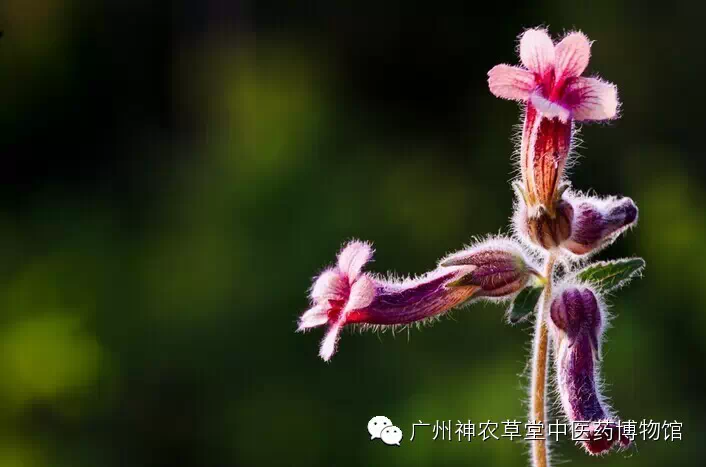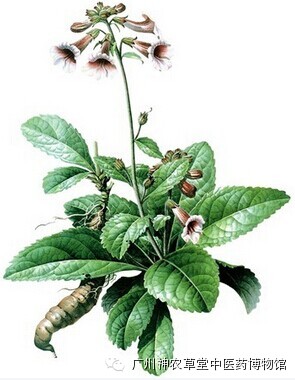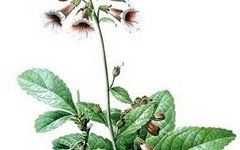
Shudi, also known as Shudihuang, is the dried rhizome of the perennial herb Rehmannia glutinosa (Gaertn.) DC. that has been repeatedly steamed with wine. The plant can reach a height of 30 cm, with fleshy rhizomes that are yellow when fresh. Under cultivation, the stems are purplish-red and can reach a diameter of 5.5 cm. The leaves are ovate to elongated-oval, with the veins depressed on the upper side. The flowers are arranged in a raceme at the top of the stem, with the corolla being purplish-red on the outside and yellow-purple on the inside. The fruit is oval to elongated-oval, with a flowering and fruiting period from April to July.

【Variety Identification】
There are three types of Rehmannia: fresh Rehmannia, raw Rehmannia, and Shudi.
Fresh Rehmannia refers to the fresh tubers of the plant, which are cold in nature, sweet and bitter in taste, and enter the heart, liver, and kidney meridians. It clears heat, cools the blood, and generates fluids to moisten dryness.
Raw Rehmannia is the dried tuber of the plant, which is slightly cold in nature, sweet and bitter in taste, and enters the heart, liver, and kidney meridians. It nourishes yin, clears heat, cools the blood, and replenishes blood.
Shudi is processed from the tubers of the plant through steaming and drying, which is slightly warm in nature, sweet in taste, and enters the liver and kidney meridians. It nourishes blood, moistens, benefits essence, and fills the marrow.
 【Historical Records】
【Historical Records】
According to the “Compendium of Materia Medica”: Shudi “fills the bone marrow, generates essence and blood, nourishes the five organs, opens the blood vessels, benefits the ears and eyes, and darkens the hair,” treating “men’s five labors and seven injuries, women’s injuries leading to leakage, irregular menstruation, and various diseases during pregnancy and childbirth.”
【Properties and Meridian Affinities】
Shudi is sweet in taste, slightly warm in nature, and enters the liver and kidney meridians. The tuber is used in medicine and has the effects of nourishing blood, nourishing yin, and benefiting essence and marrow.
【Functions and Indications】
It is used for liver and kidney yin deficiency, soreness and weakness of the lower back and knees, tidal fever, night sweats, nocturnal emissions, internal heat with thirst, blood deficiency with sallow complexion, palpitations, irregular menstruation, excessive bleeding, dizziness, tinnitus, and premature graying of hair.

【Pharmacological Effects】
Modern pharmacological studies show that Shudi contains rich amounts of sitosterol, mannitol, rehmannioside, sugars, glycosides, and various vitamins and minerals. It can lower blood pressure, reduce blood lipids, inhibit thrombosis, and improve myocardial ischemia; it also has a significant blood-nourishing effect. Additionally, Shudi has cardiotonic, diuretic, hepatoprotective, anti-inflammatory, antifungal, and hypoglycemic effects.
【Selection Criteria】
Shudi can be categorized based on different processing methods, including steamed Shudi, wine-prepared Shudi, ginger-wine prepared Shudi, and charred Shudi.

The commonly available Shudi is steamed Shudi, which is irregularly shaped, varies in size, and is black both inside and out, with a glossy appearance and a wrinkled, uneven surface. The cross-section is moist, with a shiny, oily center, highly viscous, soft texture, mild aroma, and sweet taste.
Generally, there are no grades, but those that are large, heavy, soft, oily, with a black cross-section, and sweet in taste are considered the best. Especially, the Shudi from Huaiqing, Henan is the finest. (Note: Huaiqing refers to the current Jiaozuo City in Henan Province.)
【Dietary Contraindications】
Although Shudi is beneficial, its sticky nature can hinder digestion. Therefore, it should be avoided by those with spleen and stomach deficiency, qi stagnation with phlegm, abdominal distension, and loose stools. When consuming Shudi in medicinal dishes, it is also advised to avoid eating radishes, scallions, leeks, and various animal blood. Patients with colds should also refrain from using Shudi, as it may hinder the dispersal of exterior pathogens.
【Recommended Medicinal Dishes】
1. Shudi, Goji Berry, and Chrysanthemum Porridge
Ingredients: 20g Shudi, 20g Goji berries, 5g Chrysanthemum, 100g japonica rice, appropriate amount of rock sugar.
Preparation: Boil Shudi and Goji berries in water (using a clay pot) to extract the juice; steep the Chrysanthemum in boiling water and set aside; cook the japonica rice as usual, and when the porridge is nearly done, add the juice from the Shudi and Goji berries, cook until the porridge is fully cooked, then add the Chrysanthemum and simmer briefly to finish. Sweeten with rock sugar before serving, and consume in the morning and evening.

Effect: Rich in nutrients and delicious. This porridge is suitable for symptoms of headache, dizziness, palpitations, and shortness of breath due to deficiency of essence and blood, and can also be used for headache and dizziness due to liver blood deficiency, irritability, insomnia, vivid dreams, and dry mouth with bitterness.
2. Shudi, Angelica, and Lamb Soup
Ingredients: Lamb, Angelica, Jujube, Shudi, Astragalus, Ginger.
Preparation: Clean the lamb and cut it into pieces, slice the ginger, and wash the Angelica, Jujube, Shudi, and Astragalus; boil water in a pot, blanch the lamb to remove blood, then rinse off the scum; in a clay pot, add an appropriate amount of clean water, the lamb, Angelica, Jujube, Ginger, Astragalus, and Shudi, bring to a boil, then simmer on low heat for three hours.

Effect: Nourishes yin and blood, strengthens the waist and kidneys.
Source: Guangzhou Shennong Herbal Hall


